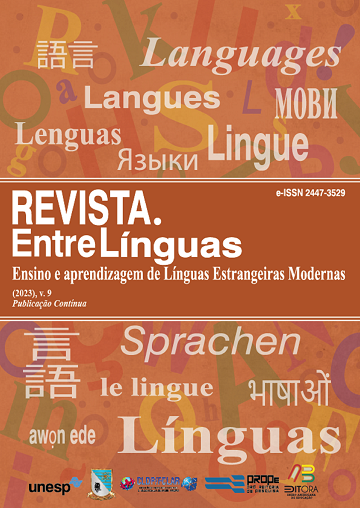The language difficulties of comprehending the text of a contract and ways to overcome them
DOI:
https://doi.org/10.29051/el.v9i00.17850Abstract
In modern civil circulation, a significant number of contracts are those of adhesion. As confirmed by judicial practice, the joining side may not understand the contract’s content or have a mistaken notion about it. The aim of the article is to research the reasons and consequences of lack of language clarity on the contract’s terms for the side that joins the contract, in order to determine the ways to eliminate them. The empirical method, the methods of description and interpretation, and the theory of formal and dialectic logic are used in the article. The reason for not understanding a contract’s terms might not be the objective complexity of the text, but the fact that the contractor does not read it. A conclusion is made that juridical means of protecting a contract’s side that has concluded a contract due to wrongous influence, are not always effective. The legal and linguistic design of a contract implies using any means of visualization that lets the contractors comprehend the meaning of a contract.
Downloads
References
BAKOS, Y.; MAROTTA-WURGLER, F.; TROSSEN, D. R. Does Anyone Read the Fine Print? Consumer Attention to Standard Form Contracts. Journal of Legal Studies, v. 43, n. 1, p. 1-35, 2014. DOI: 10.1086/674424.
BARNES, W. R. Toward a fairer model of consumer assent to standard form contracts: In: Defense of restatement subsection 211(3). Washington Law Review, v. 82, n. 2, p. 227-274, 2007. Available: https://digitalcommons.law.uw.edu/wlr/vol82/iss2/2. Access: 10 Dec. 2022.
BERGER-WALLISER, G.; BARTON, T. D.; HAAPIO, H. From visualization to legal design: a collaborative and creative. American Business Law Journal, v. 54, n. 2, p. 347-392, 2017.
DAVYDOVA, M.; KOZLOVA, M. Some trends in development of the modern civil contract language. Legal Science and Practice: Journal of Nizhny Novgorod Academy of the Ministry of Internal Affairs of Russia, v. 3 n. 47, p. 113-118, 2019.
GARCIA, R. Factors That Influence Students’ Learning Progress in the Science Spiral Progression Curriculum. Journal Of Curriculum Studies Research, v. 3, n. 2, p. 79-99, 2021. DOI: 10.46303/jcsr.2020.5.
HAGAN, M. Law by Design. 2014. Available: https://www.lawbydesign.co/. Access: 10 Dec. 2022.
INDIA. Competition Commission of India. Order under Section 26 (2) of the Competition Act, 2002, MANU/CO/0036/2017. Case No. 99 of 2016. (June 1, 2017). New Delhi, India, 2016.
KOROLEVA, A. N. Digitization of Local and Corporate Law Making of Legal Entities. Civil Law, v. 5, p. 16-18, 2018.
LUBOZHEVA, L. Despecialization of Economic Terminology. Modern Studies of Social Issues, v. 13, n. 2, p. 102-110, 2021. DOI: 10.12731/2077-1770-2021-13-2-102-110.
PITKÄSALO, E.; KALLIOMAA-PUHA, L. Democratizing access to justice: the comic contract as intersemiotic translation. Translation Matters, v. 1, n. 2, p. 30-42, 2019. DOI: 10.21747/21844585/tm1_2a2.
POGOSYAN, V. G. Problem of innovations diffusion: A historical retrospective. Voprosy Istorii, v. 5, n. 2, p. 24-32, 2021. DOI:10.31166/VoprosyIstorii202105Statyi30.
RUSSIA. Supreme Soviet of Russia. Fundamental Principles of Legislation of the Russian Federation No 4462-1 on the Notary (February 11, 1993). Moscow, Russia, 1992a.
RUSSIA. Supreme Soviet of Russia. Law No 2300-1 of the Russian Federation «Consumer protection act» (February 7, 1992). Moscow, Russia, 1992b.
RUSSIA. Supreme Soviet of Russia. Law No 4015-1 of the Russian Federation «On the organization of the insurance business» (November 27, 1992). Moscow, Russia, 1992c.
RUSSIA. Judicial station 11 in Komintern judicial district (Voronezh region) The decision in the case No 2-317/2012 (September 6, 2012). Voronezh, Russia, 2012.
RUSSIA. Russian State Duma. (2013). Law No 353-ФЗ of the Russian Federation «On consumer credit (loan)» (December 21, 2013). Moscow, Russia, 2013.
RUSSIA. Syktyvkar city court (Komi Republic). The decision in the case No 2-12991/2016 (October 3, 2016). Syktyvkar, Russia, 2016.
RUSSIA. Votkinskiy district court (Udmurt Republic). The decision in the case No 2-1208/2019 (August 2, 2019) Votkinsk, Russia, 2019.
SARAFANOVA, A.; SARAFANOV, A. Tourism and the Economy of Housing Sharing on the Example of Airbnb. Krasnoyarsk Science, v. 10, n. 2, p. 41-69, 2021. DOI: 10.12731/2070-7568-2021-10-2-41-69.
SVERDLIK, G.; ATAEVA, A. Experience of Teaching Stress State Research Methods in Equipment Details. Russian Journal of Education and Psychology, v. 12, n. 3, p. 48-62, 2021. DOI: 10.12731/2658-4034-2021-12-3-48-62.
VALEEV, D. K. et al. Civil Code of the Russian Federation. An article-by-article commentary on chapters 6-12. Moscow, Statut, 2014.
YANKOVSKIY, R. M. Legal Design: New Challenges and New Opportunities. Zakon Journal, v. 5, p. 76-86, 2019.
Published
How to Cite
Issue
Section
License

This work is licensed under a Creative Commons Attribution-NonCommercial-ShareAlike 4.0 International License.
Os manuscritos aceitos e publicados são de propriedade da Revista EntreLínguas. Os artigos publicados e as referências citadas na Revista EntreLínguas são de inteira responsabilidade de seus autores.
Transferência de direitos autorais – autorização para publicação
Caso o artigo submetido seja aprovado para publicação, já fica acordado que o(s) autor(es) autoriza(m) a UNESP a reproduzi-lo e publicá-lo na EntreLínguas, entendendo-se os termos “reprodução” e “publicação” conforme definição respectivamente dos incisos VI e I do artigo 5° da Lei 9610/98. O artigo poderá ser acessado pela rede mundial de computadores (Internet), sendo permitidas, a título gratuito, a consulta e a reprodução de exemplar do artigo para uso próprio de quem a consulta, desde que haja a citação ao texto consultado. Essa autorização de publicação 328 EntreLínguas, Araraquara, v. 1, n .2, p. 323-328, jul./dez. 2015 não tem limitação de tempo, ficando a UNESP responsável pela manutenção da identificação do(s) autor(es) do artigo. Os artigos publicados e as referências citadas na Revista EntreLínguas são de inteira responsabilidade de seus autores.











